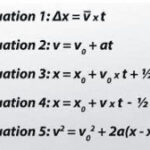Navigating the legal landscape of rental properties can be complex, whether you are a landlord or a tenant. A cornerstone of fair and equitable housing practices is the Uniform Residential Landlord Tenant Act (URLTA). This comprehensive piece of legislation provides a framework for the relationship between landlords and tenants, ensuring both parties understand their rights and responsibilities.
What is the Uniform Residential Landlord Tenant Act?
The Uniform Residential Landlord Tenant Act is a model law created to standardize and simplify the legal framework governing residential tenancies. It aims to create a balanced and just system, protecting tenants from unfair practices while also providing landlords with clear guidelines to manage their properties effectively. While URLTA is a uniform act, it’s important to understand that its adoption and specific provisions can vary by state. Therefore, understanding the nuances of your local or state’s landlord-tenant law, often based on or influenced by URLTA, is crucial.
Key Areas Covered by the URLTA
The URLTA addresses a wide range of critical aspects in the landlord-tenant relationship. Here’s an overview of the typical areas covered, reflecting the structure found in acts like the Nebraska version:
Foundational Principles and Application
- Purpose and Construction: URLTA laws are designed to be interpreted broadly to promote their underlying purposes of simplifying and clarifying rental law, and to ensure fair practices. They are built upon supplementary principles of law and equity.
- Remedies and Enforcement: The Act outlines remedies for breaches of the agreement by either party and emphasizes the duty to mitigate damages. This means both landlords and tenants have a responsibility to take reasonable steps to minimize losses if the other party violates the lease or the law.
- Jurisdiction and Scope: URLTA defines its territorial application and specifies exclusions, such as certain types of living arrangements that might not be covered. It establishes the courts that have jurisdiction over landlord-tenant disputes.
- Definitions: Clarity is key in legal matters. URLTA provides definitions for essential terms like “landlord,” “tenant,” “dwelling unit,” and “rental agreement” to prevent misunderstandings.
- Good Faith and Unconscionability: The Act emphasizes the obligation of good faith in the performance and enforcement of every contract or duty within it. It also addresses the concept of “unconscionability,” preventing the enforcement of rental agreements or clauses that are deemed unfair or oppressive.
- Notice: Proper communication is vital. URLTA specifies requirements for giving legal notice, ensuring both landlords and tenants are aware of important information and deadlines.
Rental Agreements and Obligations
- Terms and Conditions of Rental Agreements: This section outlines what can and cannot be included in rental agreements, ensuring they comply with the law.
- Prohibited Provisions: URLTA specifically prohibits certain clauses in rental agreements that are deemed to be against public policy or unfairly disadvantage tenants.
- Security Deposits and Prepaid Rent: The Act sets rules regarding security deposits, including limitations on the amount, how they must be held, and the conditions for their return, along with allowable deductions.
- Disclosure: Landlords are often required to disclose certain information to tenants, such as the identity of the property owner or manager and any known housing code violations.
- Landlord’s Duty to Provide Possession and Maintain Premises: A core landlord responsibility is to deliver possession of the dwelling unit to the tenant and maintain the property in a fit and habitable condition. This includes essential services like plumbing, heating, and electrical systems.
- Tenant’s Duty to Maintain Dwelling Unit: Tenants also have responsibilities to maintain their dwelling unit in a clean and safe manner and to avoid damaging the property.
- Rules and Regulations: Landlords can establish reasonable rules and regulations for the premises, but these must be fairly applied and communicated to tenants.
- Access: URLTA defines the circumstances under which a landlord can enter a tenant’s dwelling unit, balancing the landlord’s right to access their property with the tenant’s right to privacy.
- Tenant’s Use and Occupancy: Tenants are entitled to the quiet enjoyment of their premises for residential purposes.
Remedies and Termination
- Landlord Noncompliance: URLTA details the remedies available to tenants if a landlord fails to comply with the rental agreement or the Act, including actions for damages or termination of the lease.
- Failure to Deliver Possession: If a landlord fails to provide possession of the rental unit as agreed, tenants have legal recourse.
- Wrongful Failure to Supply Essential Services: Landlords are obligated to provide essential services. The Act outlines tenant remedies if these services are wrongfully withheld.
- Landlord’s Noncompliance as Defense: In some cases, a landlord’s noncompliance can be used as a defense by a tenant in an eviction action.
- Fire or Casualty Damage: URLTA addresses situations where the property is damaged by fire or other casualty, outlining procedures for termination of the lease and rent abatement.
- Tenant Remedies for Unlawful Ouster: If a landlord unlawfully removes or excludes a tenant or diminishes services, the tenant has remedies to recover possession or terminate the rental agreement.
- Tenant Noncompliance and Failure to Pay Rent: The Act outlines the landlord’s remedies when a tenant fails to pay rent or otherwise violates the rental agreement.
- Remedies for Abandonment: URLTA addresses situations where a tenant abandons the property, allowing landlords to retake possession and pursue remedies for unpaid rent and damages.
- Landlord Liens and Distraint Prohibited: The Act typically prohibits landlords from seizing a tenant’s personal property for rent payment, a practice known as distraint or landlord liens.
- Remedy for Termination: URLTA clarifies the procedures and remedies available when a tenancy is terminated.
- Recovery of Possession Limited: The Act often limits the circumstances under which a landlord can recover possession of the premises, ensuring tenants are not evicted without proper cause and legal process.
- Periodic Tenancy and Holdover: URLTA addresses rules for periodic tenancies (e.g., month-to-month) and what happens when a tenant holds over after the lease expires.
- Remedies for Abuse of Access: Both landlords and tenants have remedies if the other party abuses the right of access to the dwelling unit.
- Retaliatory Conduct Prohibited: Landlords are prohibited from retaliating against tenants for exercising their legal rights, such as reporting housing code violations.
- Action for Possession (Eviction): URLTA outlines the legal process for eviction actions, including the required notices, court procedures, and tenant defenses.
Why is the Uniform Residential Landlord Tenant Act Important?
The Uniform Residential Landlord Tenant Act plays a crucial role in establishing fair and balanced relationships between landlords and tenants. It promotes:
- Clarity and Predictability: By standardizing rental laws, URLTA provides a clear framework for both parties, reducing misunderstandings and disputes.
- Tenant Protection: It safeguards tenants from unfair practices, ensuring basic rights related to habitability, security deposits, and eviction procedures.
- Landlord Guidance: URLTA gives landlords clear guidelines on their responsibilities and rights, helping them manage their properties effectively and legally.
- Dispute Resolution: The Act provides a legal basis for resolving disputes, offering remedies for breaches of the rental agreement or violations of the law.
Understanding Your Local Laws
While the Uniform Residential Landlord Tenant Act serves as a valuable model, it is essential to remember that landlord-tenant law is primarily governed at the state and sometimes local level. Many states have adopted versions of URLTA, but they may have modified or supplemented it with their own specific provisions. Therefore, it is always critical to:
- Identify if your state has adopted URLTA or a similar act.
- Research your state’s specific landlord-tenant laws.
- Consult with legal professionals for advice on specific situations.
By understanding the principles of the Uniform Residential Landlord Tenant Act and the specifics of your local laws, both landlords and tenants can foster respectful and legally sound rental relationships.


